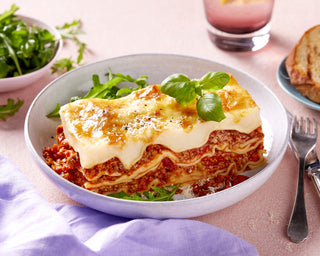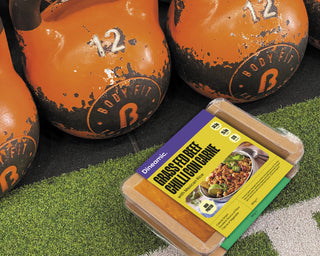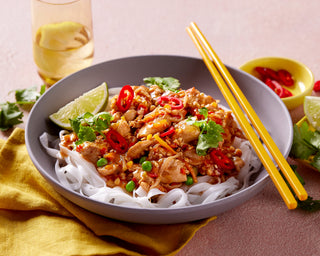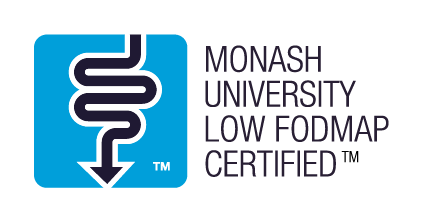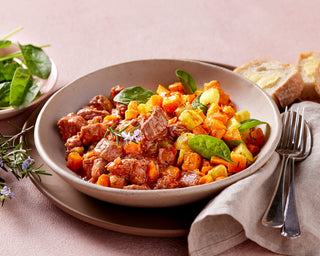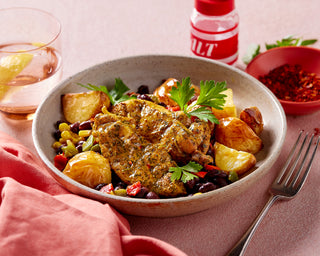
As the weather gets colder there is often the temptation to warm up & eat a little more, like having a coffee or tea in the afternoon and adding a snack to keep you going for the rest of the day. Choosing the right snacks to keep you going while avoiding a winter blow out can be a challenge to say the least.
With countless studies taking a range of formats and each having seemingly conflicting results, it can be tricky to know where to start and what to listen to when it comes to healthy snacking habits.
While there are two opposing camps on snacking (for & against), there are some basic guidelines and go-to snacks that will mean you don’t go hungry and you’re not overeating either.
The Potential Benefits of Snacking
Avoid overeating/ appetite control
Snacking can help suppress excessive hunger. By managing your hunger levels throughout the day, you can avoid the metabolic decline (or mid-afternoon slump) and be less likely to overload your plate or go back for seconds.
Keep in mind that overeating doesn’t just happen with unhealthy food – if you’re overly hungry even healthy meals can be over-loaded on your plate, so keep healthy portion sizes in mind.
Avoid eating the wrong food
Having healthy snacks on hand means that you won’t reach for the bad stuff when you start getting hungry. Instead, you’ll be able to snack on something good & good for you before you even get tempted to reach for those biscuits sitting in the staff kitchen or a chocolate bar at the checkout.
When we say ‘the wrong food’ or ‘bad food’ we mean discretionary foods like chocolate bars, biscuits, doughnuts & other foods that are energy-rich yet nutrient poor. These are ok sometimes, but snacking on them every day is never a good idea. If you’re eating the right foods, or have them close at hand when you do need a snack, then you’re already set up to avoid a snaccident.
Sustain energy levels & concentration
Carbohydrate-rich snacks and those that contain protein with amino acids, tryptophan, serotonin and norepinephrine helps increase mental alertness and improve cognitive function. Think smoked salmon, peanuts & carrots to beat the arvo brain fog (Spring & Lloyd).
Prepare & recover from exercise
Making sure that your body is fuelled before and after exercise is critical to ensure that you perform your best, avoid fatigue and help your body recover efficiently. If you’re heading to the gym after a long day at work, and you haven’t had anything since lunchtime, a snack is a good idea so that you get the most out of your training and don’t feel rotten the next day.
For more on this, check out our post on eating for energy & recovery.
Boost nutrient intake
Snacks can be a great way to sneak in some extra nutrients, minerals and vitamins into your diet in the form of fruit and vegetables, wholegrains, yoghurt and more. By eating nutrient-dense foods when snacking, there is not only benefit to your energy and concentration, but also to the healthy functioning of your body.
The Potential Negatives of Snacking
Excessive Caloric Consumption
Snacks are meant to help you maintain your energy levels and stop you from over-eating at meal times due to excessive hunger, however, this is not always the case. By eating large meals and snacking, or even eating the wrong type or too much when snacking, it can be easy for you to blow out your intake of calories. To avoid this, choose healthy snacks and keep an eye on your portion size for snacks and meals.
Emotional Eating or Eating for Stress
This one can sometimes be easier said than done, but if you recognise that you do this, and/ or arm yourself with healthy options, then you’ll be better armed to avoid emotional snacking or snacking because you’re stressed or bored.
Snacks should be saved for when you’re actually hungry or need to fuel yourself for training, not because you’re having a bad day – that’s the danger territory, where you’re likely to choose unhealthy options or eat too much.
So What’s Right for Me?
There is no simple answer to this one we’re afraid. It’s important to listen to what your body needs and how you’re feeling throughout the day. Take into account things like what meals you’re eating, what physical activity you’re doing, and also what your body is used to.
What you need day to day will differ based on what you have on. And if you find yourself constantly hungry between meals, it might be worth taking a look at whether you’re getting the nutrients, protein & carbohydrates that you need to last between meals.
It’s important to remember that each person is different and while snacking can be great for some, it might not be necessary for others.
What are Our Go-To Snacks?
Yoghurt & Granola
Choose a natural or Greek yoghurt, and granola that isn’t too high in sugar (remember that honey, brown sugar syrup, rice malt syrup are still sugars).
What makes this so good? The protein levels of the yoghurt will keep you feeling full for longer, and contain probiotics being good for your gut. The granola will often contain things like oats, nuts and seeds which provide a source of healthy fats, fibre, and protein.
Helpful hint: Greek yoghurts and ‘Greek-style yoghurts’ do differ. Greek yoghurts are strained of their liquid whey to leave a thicker yoghurt minus the fat. Greek-style yoghurts on the other hand are not strained and often include thickeners, solids to replicate a similar consistency.
Some staff favourites here at Dineamic include yoghurt from Jalna, Chobani & Five AM, and granola from Carman’s, Five AM & Dineamic’s own blend of toasted muesli and bircher muesli blends found in our Dineamic stores & cafés.
Chia Pudding
 One of those trends that have been on the scene for a few years now, it seems like everyone has a chia pudding recipe of their own! Chia seeds are packed full of antioxidants, omega 3 fatty acids, fibre, protein, and calcium. Yep… they pack a nutritional punch for something so tiny!
One of those trends that have been on the scene for a few years now, it seems like everyone has a chia pudding recipe of their own! Chia seeds are packed full of antioxidants, omega 3 fatty acids, fibre, protein, and calcium. Yep… they pack a nutritional punch for something so tiny!
Chia pudding is a great way to eat chia and often they’re made with other good ingredients like coconut milk and berries.
Popcorn
In recent years popcorn has gone gourmet and as a result, there are so many options out there now. This is exactly why knowing what is actually healthy and what to avoid when choosing a healthy option is important. The good news is, there are some pretty easy tips for this – for starters, choose air-popped popcorn rather that oil-popped. Following on from that, it’s the toppings/ flavours and sugar that you’ll need to keep an eye on – go for options that don’t have too much added salt or sugar, and definitely avoid popcorn smothered in butter (sorry team!).
Why is popcorn good? When you choose a healthy option and watch your serving size (around 30g is good), then you’re in for a snack that is low in calories, high in fibre and contains polyphenols which help fight free radicals.
Try air popping at home – just put 25g of corn kernels into a paper bag, fold the top over a couple of times, microwave for 1-2 mins & wait until the popping sound stops.
Power Balls
 These come in so many different forms & go by so many different names now! We call them Power Balls here at Dineamic, but there’s also bliss balls, and protein balls out there on the market. The key with these is to ensure that the ingredients are actually good for you & the sugar and fat content isn’t too high.
These come in so many different forms & go by so many different names now! We call them Power Balls here at Dineamic, but there’s also bliss balls, and protein balls out there on the market. The key with these is to ensure that the ingredients are actually good for you & the sugar and fat content isn’t too high.
If you get the good ones, they are great to stop hunger in its tracks and give you a long-lasting energy & nutrient boost with an assortment of ingredients like nuts, seeds, and fruit depending on the ones you choose.
Check out our Cherry Ripe Power Balls, Tropical Power Balls, or Date & Almond Power Balls for some good options. These come in packs of three & one Power Ball is one serve, so you always know when to stop. Easy, right?
Muesli slice
Muesli bars and slices usually come with a ‘healthy’ image. Most contain a blend of wholegrains, nuts, seeds and fruits and are combined using sweeteners of some sort with some addition of fat or oil to keep them tasty. Our Dineamic Muesli Slice is about double the serving size (90g) compared to conventional supermarket muesli bars (35-45g), but as you know, we take the nutritional content and portion size seriously so it gives you portioned kilojoules, fat and sugar – no bad stuff included & no overeating required.
By keeping in mind your choice of snack, and the portion that you eat, snacking can be a great way to keep you going throughout your day. Remember that everyone is different, so the snacks you choose and when you eat them will depend largely on what works for you & what you have on.
Let us know in the comments what your favourite healthy snacks are & why you love them!


